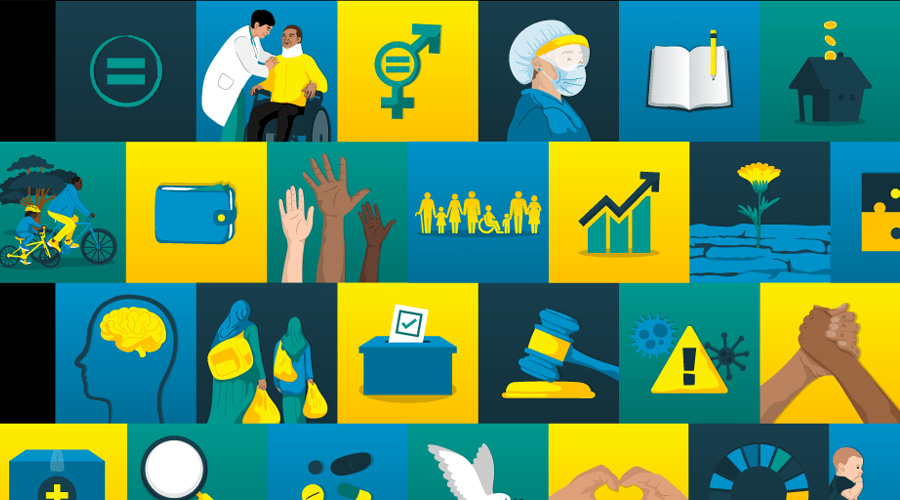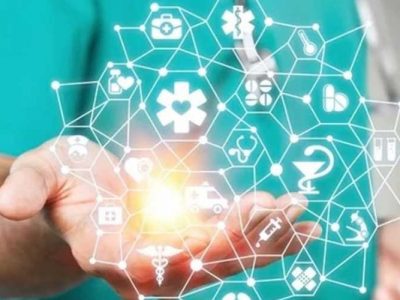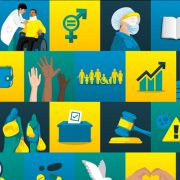Healthcare 5.0 with metaverse and blockchain technology will offer new opportunities
Emerging digital technologies in healthcare 5.0 with metaverse and blockchain technology, continue to develop, offering healthcare systems around the world unprecedented opportunities to enhance service delivery. Even though smart healthcare has made a lot of progress, more research, new ideas, technologies, and dissemination are needed to unbundle new opportunities and move toward healthcare 5.0 with metaverse and blockchain technology.
The new generation of Healthcare 5.0 is expected to emerge as a result of the metaverse and blockchain technology having a significant impact on numerous sectors, including healthcare. Without relying on central authorities, a distributed database like blockchain ensures transaction security and transparency.
HEALTHCARE 5.0:
The metaverse and blockchain technology is bringing about a paradigm shift in healthcare, ushering in a new era of smart healthcare management, smart healthcare monitoring, and smart healthcare decision-making.
Emotional telemedicine, ambient assisted living, smart self-management, wellness monitoring, and control, smart healthcare treatment reminders, compliance and adherence, and personalized and connected healthcare are all offered by Healthcare 5.0, which incorporates metaverse and blockchain technology. In healthcare 5.0 with metaverse and blockchain technology, however, building resilience and robustness is not without its challenges.
Digital technologies are used in smart healthcare to connect people, resources, and organizations, effectively manage and respond to health environment demands intelligently, and easily navigate healthcare information. Patients, healthcare professionals, organizations, and regulators are just a few of the various stakeholders in the health system that smart healthcare connects. Artificial intelligence (AI), the internet of things (IoT), fog computing, cloud computing, blockchain technology, sensors, 5G technology, and the internet of medical things (IoMT) are some of the emerging technologies that are helping to accomplish this. Healthcare 5.0 with metaverse and blockchain technology is an upcoming innovative concept.
THE START OF A NEW ERA: Healthcare 5.0
The COVID-19 outbreak was a spectacular outburst that presented unprecedented challenges as well as opportunities to transform global healthcare systems. One example is the requirement to provide healthcare despite the rising number of confirmed cases and deaths caused by the virus.
As a result, it is now necessary to implement cutting-edge digital technologies to speed up the process of providing virtual healthcare services. As a result, to support virtual healthcare, the healthcare system needs to incorporate sensors, particularly in healthcare 5.0. Smart healthcare has made a lot of progress, but more research innovations, technologies, and dissemination are needed to unbundle new opportunities and move toward healthcare 5.0.
Advanced medical imaging and tracking systems, as well as healthcare 4.0, were developed as a result of the transition from healthcare 4.0 to healthcare 5.0, with metaverse and blockchain technology, and the significant capabilities of sensors in healthcare 5.0. Real-time patient and professional care customization are made possible by Healthcare 4.0, which brings the principles and applications of Industry 4.0 into healthcare. As a result, healthcare 4.0 encourages healthcare systems to achieve resilient performance, which refers to their adaptable capacity to deal with complexity. Creative computerized advances embraced in medical services 4.0 advance continuous customization of the medical services given to patients and the correspondence between entertainers in the medical services esteem chain and scattering of wellbeing-related data.
However, the integration of intelligent sensors in healthcare 5.0 with metaverse and blockchain technology is necessary due to the absence of emotive recognition, personalized and widespread health applications, and emotive smart healthcare devices. Transportation, medical care, nanotechnology, mobile devices, virtual and augmented reality, and artificial intelligence all benefit from the use of sensors. Since their introduction, sensor technologies have significantly enhanced the healthcare system. In healthcare 5.0, wearable sensors have been used for remote patient monitoring among other functions. They can be flexible or non-flexible.
MAJOR NEW METAVERSE AND BLOCKCHAIN TECHNOLOGIES AND THEIR ROLES IN HEALTHCARE 5.0
The latest digital technologies that can be used in healthcare 5.0 are nanotechnology, 5G technologies, drone technology, blockchain, robotics, big data, the Internet of Things, artificial intelligence, and cloud computing.
Nanotechnology
The applications of nanotechnology will greatly benefit Healthcare 5.0. The potential for nanotechnology to transform healthcare services is unprecedented. Therapeutics, rapid diagnostics, surveillance and monitoring, and the creation of novel vaccines and personal protective equipment all depend on nanotechnology
Internet of Things
In healthcare, the Internet of Things (IoT) has been widely used to connect medical devices and share health data over the Internet. There are a few arising varieties of sensor-based IoT in medical care 5.0, each with its idiosyncrasie
AI
The integration of AI and automation is expected to transform the provision of healthcare services and permeate healthcare 5.0. Simulated intelligence in medical services 5.0 with metaverse and blockchain innovation incorporates different ideas, for example, computerized and exact sickness expectation, location, determination, savvy medical care drug improvement, viable patient remote checking, successful usage of mechanical careful frameworks, and the advancement of emotive sensor-based artificial intelligence shrewd medical care gadgets.
The development of smart healthcare wearable devices that analyze the behavior of patients with chronic conditions to determine degrees of depression, stress, anxiety, and pain could also benefit from the expansion of emotion AI in healthcare 5.0 with the help of the metaverse and blockchain technology.
5 G technology
New global wireless standards with a multiple-in, multiple-out architecture and a high data transfer rate and bandwidth are required to ensure the effective digital automation of smart devices in healthcare 5.0. Because it can handle 1000 times more traffic in the transmission channel and has a high user data rate, 5 G technology has become a crucial and essential technology.
Robotics
Healthcare systems will undoubtedly be altered as a result of the metaverse’s incorporation of robots and blockchain technology into healthcare 5.0. By detecting and diagnosing diseases, developing vaccines, and performing surgical procedures, robots significantly improved healthcare service delivery. However, significant advancements in robotics, particularly in healthcare 5.0, are required due to the absence of emotive recognition, personalized care, ubiquitous health applications, and emotive smart healthcare devices.
The future interconnectedness of intelligent sensors, smart devices, and other digital technologies will ultimately increase the amount of healthcare data, resulting in big data in healthcare 5.0 with metaverse and blockchain technology. In the end, these data will be used for personalized care and disease prevention, detection, and monitoring. As a result, patients and healthcare professionals stand to benefit greatly from big data, which is expected to have an unprecedented impact on health systems.
By establishing robust API connections between various digital health technologies, the upcoming implementation of the Metaverse and blockchain technology could foster scalability and patient-driven semantic interoperability



















